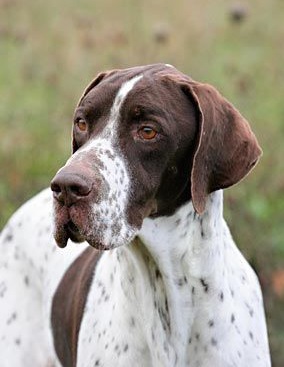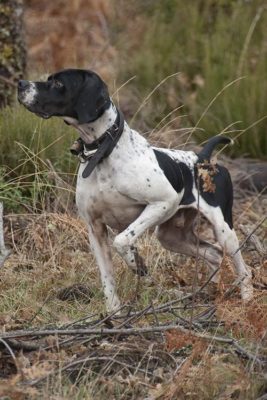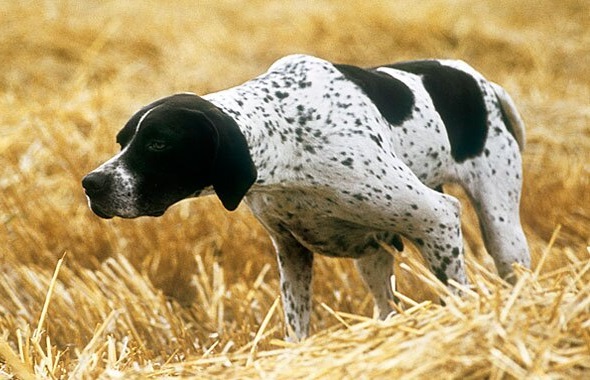Pointer
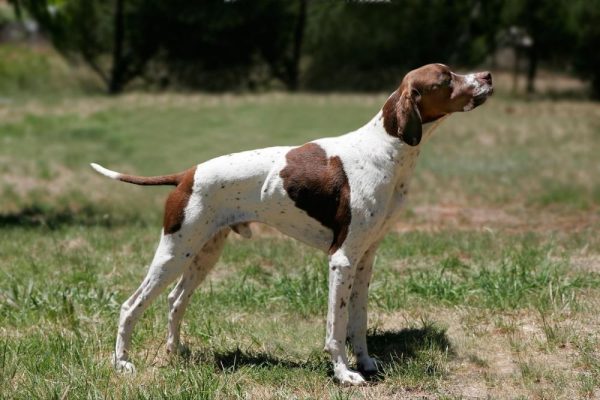
The Pointer is a kind and obedient dog with a balanced character. In the hunt, the dog is very frisky and energetic, but it is usually calm and quiet at home. The pet is loyal to the owner, always supportive, ideal for the family. Get along well with children, playing with them with pleasure.
Table of Contents
Breed Information
| Another Name | English Pointer |
| Origin | England |
| Height | Males 56-70 cm Females 53-66 cm |
| Weight | 20-34 kg |
| Fur | Short, straight |
| Color | Lemon and white, black and white, brown and white |
| Lifespan | 12-17 years |
| FCI Classification | Pointing Dogs |
| Group | Hunting dogs, dogs for children |
| Price | $200-1000 |
Breed Photos
Origin History
The breed appeared in England in the 16th-17th centuries. The Pointer owes its origin to Old Spanish Pointers and Portuguese Braccoons. Since 1877 the dog began to participate in exhibitions as an independent breed. In the XIX century, Pointers were brought to the United States, where they became trendy among hunters, overshadowing the local setters. The breed is highly regarded in hunting circles to this day. The first standard for the Pointer was adopted back in 1897. Three years later, the breed was recognized by the British Cynology Association. The modern standard appeared only in 2009.
Appearance
The English Pointer is a strong dog with a powerful but not massive build. The chest is broad and strong, narrowing at the waist. On the long muscular neck is a moderately wide head with a pronounced occipital tubercle. The muzzle is blunt-angled, with a small depression on the back of the nose. The ears are of medium length, tightly fitted to the head. The eyes are light brown or brown.
The limbs are straight, muscular, with oval paws. The tail is not long, very thick at the base, tapering to the tip. The coat is short, smooth. The color varies from lemon-white to black and white.
Character
The Pointer is a kind and obedient dog with a balanced character. In the hunt, the dog is very frisky and energetic, but it is usually calm and quiet at home. The pet is loyal to the owner, always supportive, ideal for the family. Get along well with children, playing with them with pleasure. Neutral to strangers, so the guardian of this dog will not turn out. Pointer is rather loyal to other pets but cannot resist birds – immediately rushes on them.
Care
Representatives of the breed are sociable and have a lot of excess energy. With them, you need to walk and give them proper attention constantly. Therefore, the ideal home would be a country house with a large area. In the city apartment, the dog will be cramped. Keeping a freedom-loving dog on a leash at all is not recommended.
Pointer’s hair is short and smooth and does not require any special care. You should bathe your dog at least once a week. Timely trim claws, clean eyes, and ears from deposits.
Training
With obedient Pointers, there should be no problems in terms of training. A small obstacle will be the freedom-loving nature and stubbornness of the hunting dog. Therefore, the pet requires early socialization. The dog must recognize the authority of the owner and carry out basic commands from an early age. While raising the English Pointer, one should not show both excessive gentleness and unnecessary cruelty. Raising your voice or using force against the puppy without a special reason is not worth it.
A dog requires constant walks and lots of physical activity. To raise a dog to be a real hunter, you need specialized training, which it is better to entrust to a professional. He will gradually teach the Pointer all the basics of hunting.
Common Diseases
The Pointer is not a dog with the best of health. The breed is prone to the following diseases:
- hip dysplasia;
- cherry eye;
- allergies;
- epilepsy;
- thyroid problems;
- dwarfism.
As a dog ages, it is prone to eye diseases: retinal atrophy, corneal dysplasia, and cataracts. Aging individuals sometimes exhibit chronic inflammation of the cornea, pannus.
Nutrition
The English Pointer, like any other hunting dog, expends a lot of energy daily. Therefore, to maintain health, the pet needs a proper, balanced diet. Its basis should consist of high-quality proteins in lean meat, fish, and dairy products. You should not forget about fruits, vegetables, and greens. From them, the dog will get the necessary vitamins and fiber. Fats, necessary for the growth of the pet’s body, the Pointer will get from butter and vegetable oil and beef fat.
It is not recommended to feed your pet potatoes, yeast baked goods, citrus fruits, grapes, legumes, tubular bones, food with spices, convenience foods, sweets, and chocolate. Puppies up to two months of age should be fed up to six times a day, reducing the number of feedings each month. After six months, the dog should eat twice a day.
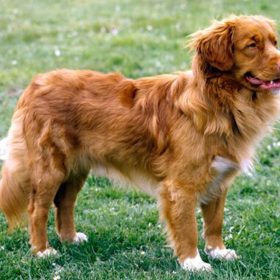 Nova Scotia Duck Tolling Retriever
Nova Scotia Duck Tolling Retriever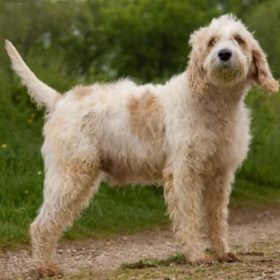 Briquet Griffon Vendéen
Briquet Griffon Vendéen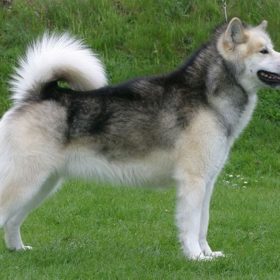 Greenland Dog
Greenland Dog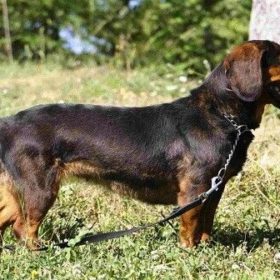 Alpine Dachsbracke
Alpine Dachsbracke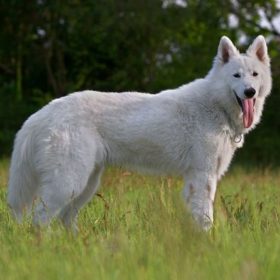 White Swiss Shepherd
White Swiss Shepherd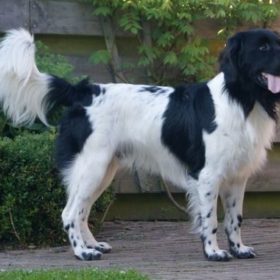 Stabyhoun
Stabyhoun